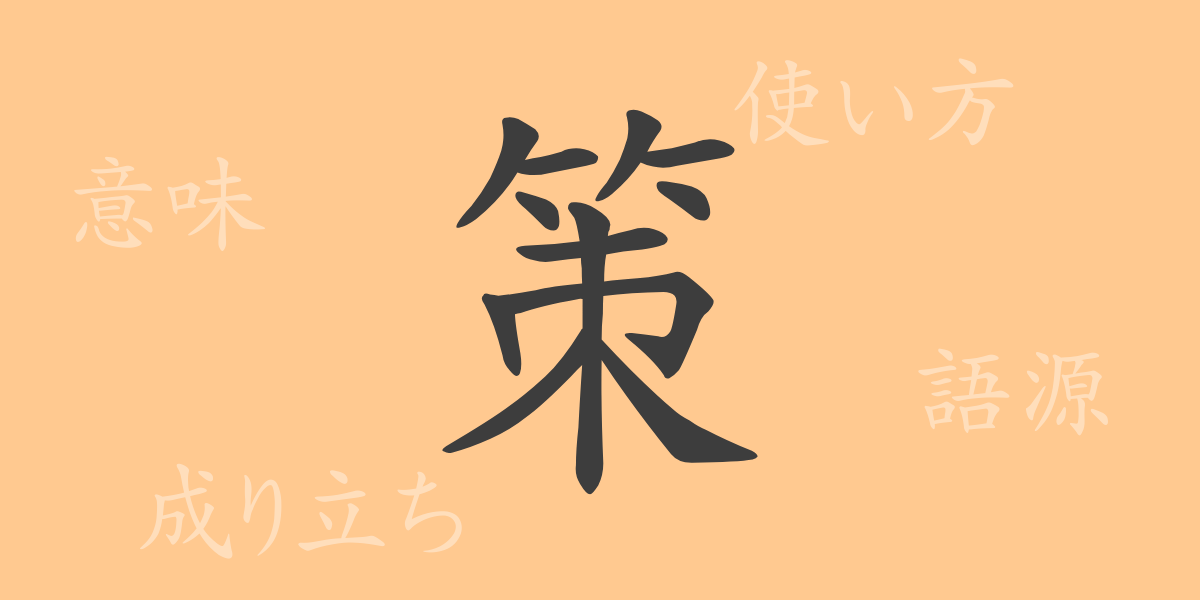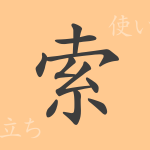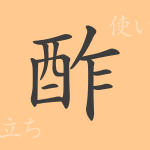In the rich tapestry of Japanese expression, 常用漢字 (じょうようかんじ, jōyō kanji) form the foundation of communication. “策” (さく, saku) is one such kanji, frequently used in contexts related to business and strategy, deeply rooted in our daily lives. This article delves into the fascinating kanji “策” (さく, saku), exploring its origins, usage, idiomatic expressions, and proverbs.
Origin of 策 (さく, saku)
To understand the kanji “策” (さく, saku), one must look at its origin. “策” (さく, saku) derives from “筴” (さく), which in ancient China meant a tube for holding arrows. Over time, it came to signify documents outlining plans and strategies. As centuries passed, it became established as a character representing “plans” or “strategies” in an abstract sense.
Meaning and Usage of 策 (さく, saku)
In modern Japanese, “策” (さく, saku) is primarily used to denote plans, strategies, or schemes. This kanji is frequently used to describe clever methods or strategies aimed at achieving goals. “策” (さく, saku) is prevalent in business, politics, and game tactics, among various other scenarios.
Readings, Stroke Count, and Radical of 策 (さく, saku)
How is the kanji “策” (さく, saku) read and written in Japanese?
- Readings: The on’yomi (音読み) reading is “サク” (saku). There is no specific kun’yomi (訓読み) reading.
- Stroke count: “策” (さく, saku) has 12 strokes in total.
- Radical: The radical is ⺮ (たけかんむり, takekanmuri), meaning “bamboo.”
Idioms, Phrases, and Proverbs Using 策 (さく, saku) and Their Meanings
There are numerous idioms, phrases, and proverbs in Japanese that include the kanji “策” (さく, saku). Here are a few examples:
- 策略 (さくりゃく, sakuryaku): Schemes or plots. Refers to clever plans or strategies.
- 謀策 (ぼうさく, bōsaku): Strategy or plan. Often refers to devious schemes to trap others.
- 策を練る (さくをねる, saku o neru): To carefully consider plans or methods.
- 無策 (むさく, musaku): Having no plan or strategy. Indicates a lack of preparation or means.
These expressions are commonly used in daily conversations and business settings, effectively conveying intentions and situations.
Conclusion on 策 (さく, saku)
The kanji “策” (さく, saku) has been used across various contexts, from its origins to its current meanings involving strategies and plans. It is an essential part of many idioms and expressions, making it indispensable for articulating thoughts and actions. Skillfully using “策” (さく, saku) in business and daily life can help achieve goals more effectively.

























